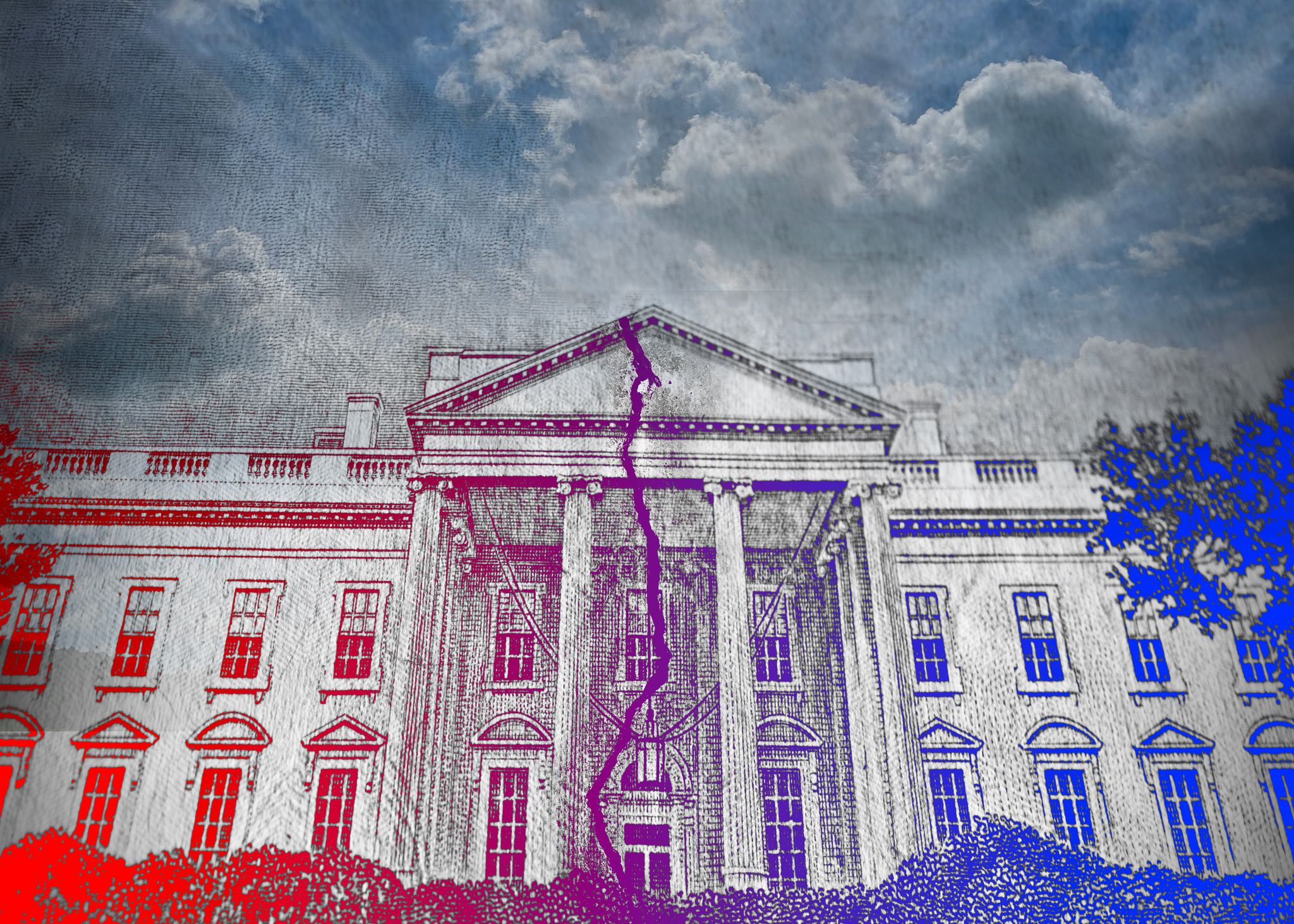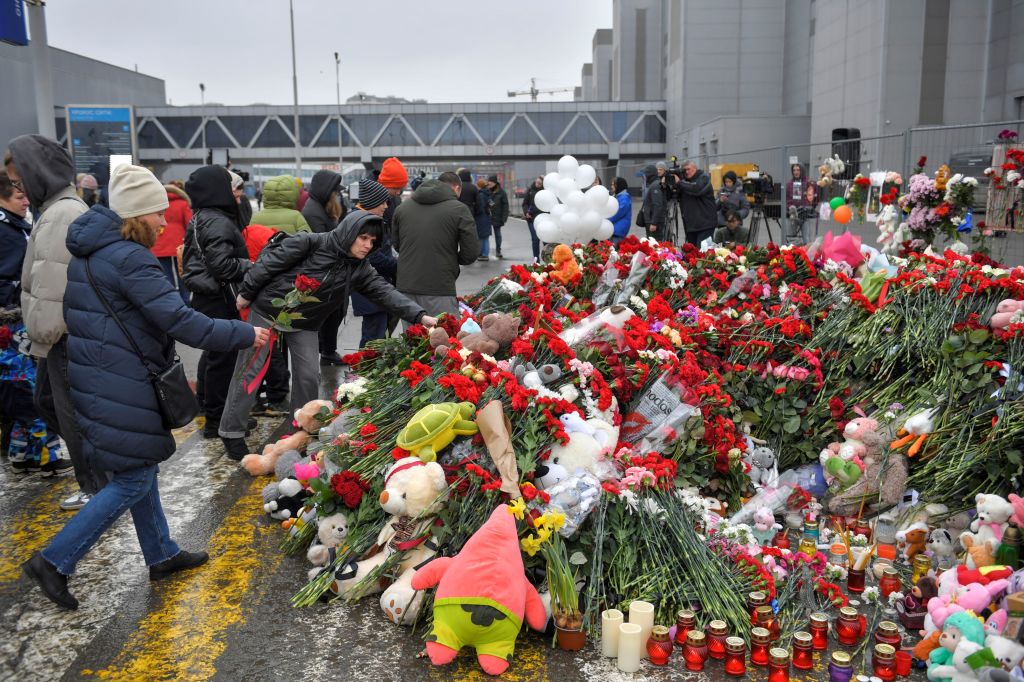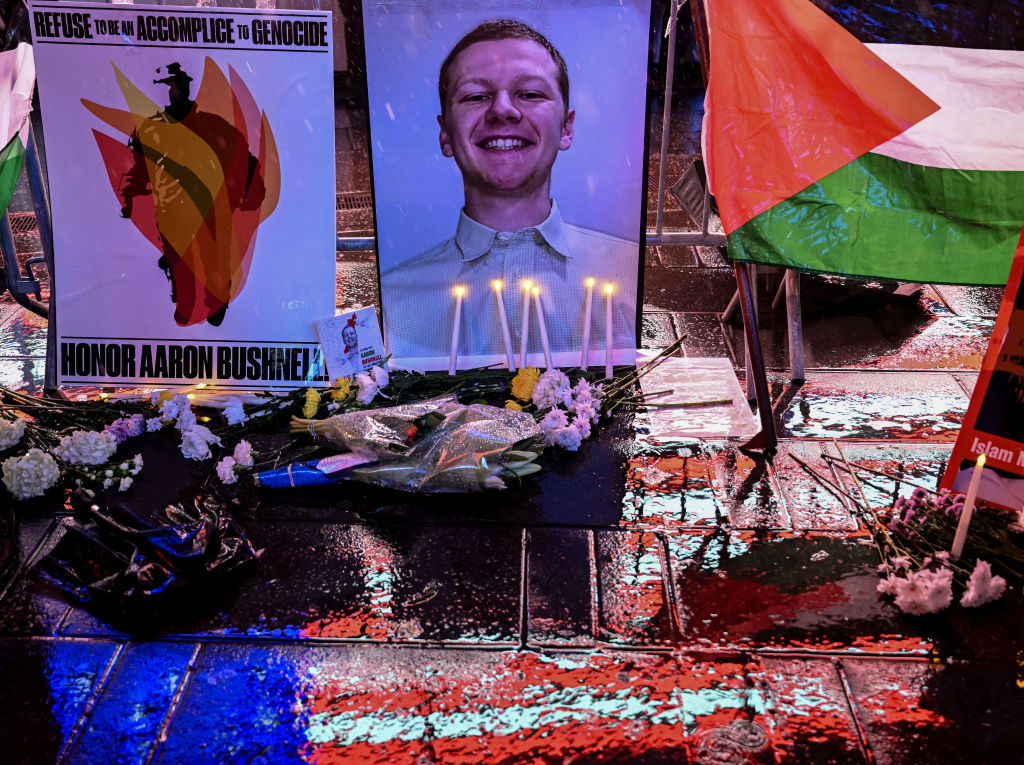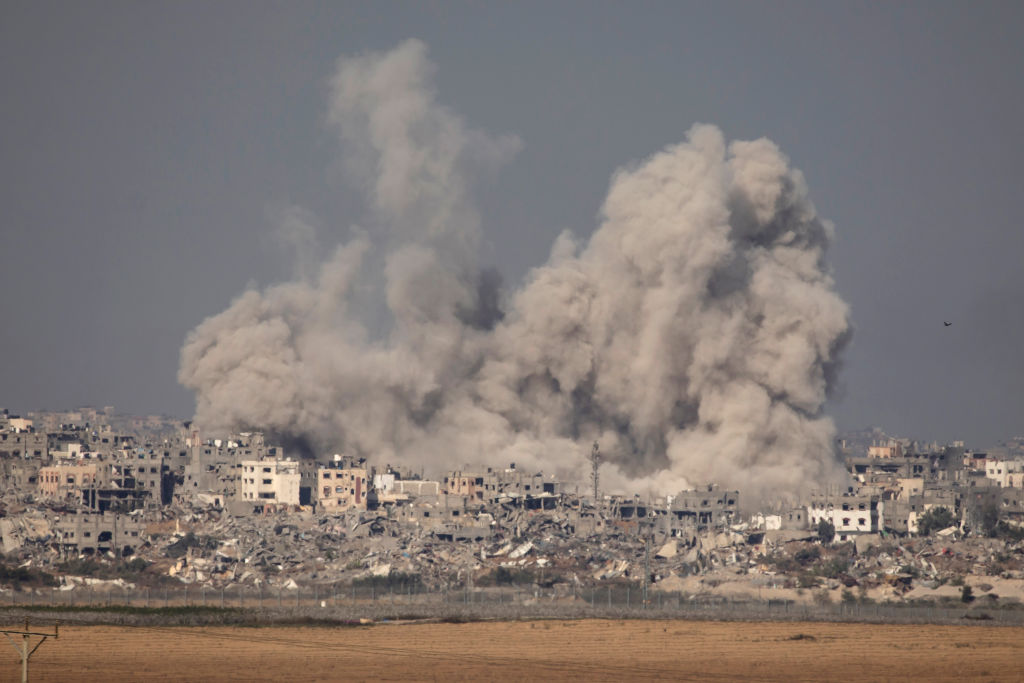The fringes are fraying.
Getting Real About Realism

A brief discussion regarding theories of international relations.
Among both the intellectual and political conservative worlds there is widespread frustration with “forever wars,” or ideological crusades to promote “democracy,” and the danger of “an escalation to the extremes” (as Clausewitz famously put it) implicit in our undeclared war with Russia. There is opposition to the foreign policy of the Biden Administration and its aggressive spread of a woke imperium—where LGBTQIA+ ideology and support for abortion-on-demand are prerequisites for belonging to the newly redefined democratic world. One also finds strong opposition to the “conservative” promoters of aggressive American power projection. The old conservative establishment is under attack.
Neoconservatism, for example, once stood for a proud and principled defense of the American republic, tied to realism about the hard choices that had to be made in a dangerous and contentious world. No friends of utopian illusions, the original neoconservatives preferred authoritarian regimes in South Korea and South Vietnam to their implacable totalitarian opponents to the north, and the imperfect regime of an ally such as the Shah of Iran to the fanaticism and unalloyed anti-Americanism proffered by the Shah’s most influential critics. The first neoconservatives were thus sharply critical of Jimmy Carter-style human rights promotion as a tenet of American foreign policy.
But at the end of the Cold War, Irving Kristol, the neoconservative par excellence, even called for the abolition of NATO, whose goal of preserving Western liberty during a civilizational emergency had been admirably achieved. President Reagan’s U.N. Ambassador Jeane Kirkpatrick, who intrepidly stood up to her country’s communist and Third-World enemies, called in Making War to Keep Peace for the United States to become a “normal country” by ceasing the effort to be a global hegemon or hyper-power. But a new generation of soi-disant “neoconservatives” continued to look abroad for dragons to slay. For them, any act of prudent restraint was immediately stigmatized as “appeasement.” They invoked “Munich 1938” as ritualistically as the neo-pacifist Left saw “another Vietnam” in any vigorous defense of America’s vital interests. Even the prostrate Russia of the nineties, wracked by economic collapse, lawlessness, and unprecedented levels of corruption, was seen as a permanent danger. “Eternal Russia,” and not communist totalitarianism, for them was the real foe in the Cold War.
After 9/11, the very real threat of Islamist extremism was said to justify a Third or Fourth World War, with “Islamofascism” taking the place of Nazism and Communism as the new primary ideological foe. By a sleight of hand, “democracy promotion” was militarized at the service of bringing human rights and “democratic peace” first to the Arab Islamic Middle East, and then the rest of the world. There was more than a whiff of utopianism (and messianism) in George W. Bush’s 2005 Second Inaugural Address, with its declaration and conviction that love of liberty was the dominant impulse of the human soul in every time and place. To suggest, as some did, that Monrovia and Baghdad were hardly good candidates for democratic transformation made one an unprincipled foreign policy “realist” (at best), or a racist (at worst). This giddy democratic euphoria did its best to pass for the face of conservatism in the post-communist world.
Meanwhile, democratic nation-building proceeded in an Afghanistan that barely resembled a modern nation, and NATO began moving inexorably to the east, a shift already begun under the Clinton Administration. After the ill-advised Russian intervention in South Ossetia in August 2008, the Bush Administration declared its intention to expand NATO to include Ukraine and Georgia. The thought that Russia had national interests of its own, and that it was the West that was moving east and not the other way around, was considered almost treasonous in elite foreign policy circles. In these circumstances, conservatives wary of “democratic triumphalism” began reconsidering the tradition of statecraft called foreign policy realism.
Meanwhile, neoconservatism radicalized even further, with many of its proponents promoting “progressive democracy” at home and abroad. The active encouragement and not-so-covert support for the Maidan Revolution in Ukraine in 2014 against a corrupt but elected government tilted Ukrainian politics heavily against its Russophone population and in the direction of Russophobic Galician nationalists from Ukraine’s east, and set the stage for the disasters that followed. A delicate balance was undone. This reckless interventionism was promoted and defended by the likes of Bill Kristol, Anne Applebaum, Robert Kagan, John McCain, and of course Victoria Nuland, the left-neoconservative who did so much to shape American policy toward Russia and Ukraine then and now.
While many prudent conservatives were ready to reconsider the virtues of foreign policy realism, some prominent conservative voices and venues saw, and continue to see, any departure from unrelieved hostility to post-communist Russia and support for limitless expansion of NATO as a dangerous departure from “Reaganism.” They simply assume that Reagan, a principled anti-totalitarian, would see in an authoritarian but non-ideological Russia a “revolutionary” state (in Henry Kissinger’s words from A World Restored) that aimed to upend the entire international system. The facts, however, do not justify that judgment.
After February 2022, the Russians could have destroyed Kiev in two weeks as the Germans did to Warsaw in September 1939. They did not do so because their aim was never to conquer Ukraine tout court. Only by falsely identifying Putin with Alexander Dugin’s “Eurasianist” imperialism rooted in Heideggerian fascism, by defining him as a mixture of Hitler and Stalin, and by ignoring important features of the post-communist Russian state (especially its aversion to Leninism and communist ideology), could Russia, weak demographically and far from powerful militarily, be turned into the permanent enemy of the human race.
It is true that Putin’s Russia is less free than it used to be, though it is much freer than the old Soviet Union. And there is a growing atmosphere of brutality that does not bode well for the future of the country. Putin has stayed in power for too long, thus crowding out the kind of political life that exists even in a moderately authoritarian regime. But, despite all this, Russia is hardly a revolutionary state. For instance, she is well disposed to Israel. She has no interest in restoring an empire in the east of Europe to replace the old Warsaw Pact, but she does have a palpable interest in preventing a Ukraine with NATO troops and nuclear weapons on her borders. One is hardly an “apologist” for recognizing this elementary point.
I therefore largely welcome (“two cheers”) the realist turn in conservative thought about statecraft and foreign affairs. Realism has always been a corrective, often a necessary one, to legalistic, moralistic, and utopian illusions. But it should be remembered that realism as a theory leaves much to be desired. Realists simplify the motives of statesmen, seeing rationality at work only in the calculation of forces and the judicious balancing of power, militarily and otherwise. This is to foreshorten our understanding of politics and statesmanship. Raymond Aron noted in his 1961 classic Peace and War (a book that Leo Strauss judged the greatest 20th century work on the subject) that realists tended to treat power or power politics as both an end and a means of foreign policy, thus ignoring “glory” and “ideas” as legitimate “goals of foreign policy.” Realism has always been more prescriptive than descriptive, despite its scientific pretensions.
There are other difficulties. In his 1951 classic In Defense of the National Interest, Hans J. Morgenthau, the most influential of the classical realists, took aim at the idea that a radical change of regime could do much to change the “national interest” of countries such as France, Germany, and Russia. To Aron, this dogmatic insistence made no sense. To recognize that all political communities calculate forces and work to maintain a reasonable balance of power congruent to a nation’s interests does not mean “that national interest might, can, or should be defined apart from the internal regime, the aspirations characteristic of the different classes, the political ideal of the state: the collectivity does not always change objectives when it changes its constitution, historical idea, or ruling elite. But how can the political units maintain, through revolutions, the same ambitions, and the same methods?”
Later in the same work, Aron wisely writes that “true realism…consists in recognizing the action of ideologies upon diplomatic-strategic-conduct. In our epoch, instead of repeating that all states, no matter what their institutions, have ‘the same kind of foreign policy,’ we should insist upon the truth that is more complementary than contradictory: no one understands the diplomatic strategy of a state if it does not understand its regime, if he has not studied the philosophy of those who govern it. To lay down as a rule that the heads of the Bolshevik party conceive the national interests of their state as did all other rulers of Russia is to doom oneself to misunderstanding the practices and ambitions of the Soviet Union.” Likewise, to see Russia today as a neo-Bolshevik state (in a country where Solzhenitsyn’s The Gulag Archipelago is required reading in public schools) or that “eternal Russia” is inevitably despotic, expansionist, and a sworn enemy of the civilized world, is to substitute ideology for the concrete study of diplomatic-strategic conduct. By separate but converging paths, both the old realism and the new neoconservatism obscure reality in the name of holding on to old antipathies and misplaced theoretical categories. Both obscure far more than they reveal.
What of the newer school of academic “structural realists”? Alas, their account of statecraft and state behavior is even more abstract and reified than the “realism” of Morgenthau’s type. They are not interested in the motives—generous, self-seeking, grasping, or measured—that constitute a (more or less) unchanging human nature,as even the old realists were. The nature of regimes—their ends and purposes, their animating principles—are of no interest to them. Domestic structure, as Kissinger called it, is for them arbitrarily separated from the conduct of foreign policy. In their new book, How States Think: The Rationality of Foreign Policy, John J. Mearsheimer and Sebastian Rosato identify rationality with a single-minded attentiveness to the “structural” relations that define international relations. But is any real statesman or diplomat concerned with “structural forces” alone? Because of this strained foreign policy rationalism devoid of all ethical criteria, Mearsheimer and Rosato find rationality at work in Japan’s imperialist quest for economic autarky in the late 1930s, in Hitler Germany’s aggressive efforts to rebuff Soviet Russia and the Western democracies to its east and west, and even in the French political class’s lame response to the German threat post-Munich! Even Neville Chamberlain, for a time, is neatly placed in the camp of the structural realists.
This is all terribly strained and finally incredible. Mearsheimer and Rosato convey little of the arrogance, brutality, and racism that led to the Rape of Nanking in 1937, the ideological fanaticism that informed Nazi foreign policy deliberations from 1933 on, or the decadence and defeatism that contributed to France’s summary collapse and dishonorable choice for an armistice in June 1940. This approach is, strictly speaking, unbelievable. One can add that Mearsheimer’s truncated criteria for “realism”—centered exclusively on “structural” considerations like the balls darting around in a billiard game—cannot fathom why Americans might care deeply about the fate of Israel in a particularly treacherous part of the world. For structural realists, Israel is just too small and too vulnerable to be of true geopolitical signifance.
Yet Mearsheimer gets one thing right: his single-minded attention to structural relations allows him to discern that Ukraine’s entry into NATO was a red line for the entire Russian political elite, including the liberal and anti-Putin opposition. American ambassador William Burns made clear in a memorandum from 2008, quoted in How States Think, that he could find no responsible person in Russia “who views Ukraine in NATO as anything other than a direct challenge to Russia’s interests…I can conceive of no grand package that would allow the Russians to swallow this pill quietly.” The structural realists get the big picture wrong. But freed as they are from the post-political moralism of contemporary Western elites, they are still able to recognize rock-bottom national interests that would be non-negotiable for any political community. That is not everything, but it is something.
Let us give the final word to the wise and discerning Raymond Aron. Like realists old and new, he was suspicious of abstract moralism in foreign policy. In Peace and War, he took aim at the Kellogg-Briand Pact of 1928 which vainly attempted to outlaw war once and for all. Aron acerbically wrote about this effort that, “Anyone imagining he was guaranteeing peace by outlawing war was like a doctor imagining he was curing diseases by declaring them contrary to the aspirations of humanity.” An anti-totalitarian thinker of the first order, Aron was sensitive to the inescapable moral dimensions of the Cold War while opposing a crusading spirit in foreign policy. Rather than calling himself a realist, which came with a crusading spirit of its own, Aron defended a “morality of prudence” against a unilateral “morality of struggle”—which was in truth a false realism—and a “morality of law” that too readily collapsed into utopia. The morality of prudence that he advocated and embodied does not eschew high principle, nor does it ignore that a statesman has a moral and political obligation to calculate forces for the sake of the freedom and independence of his country and the cause of civilization. But, Aron added, this complex morality of prudence “satisfies completely neither the moralists nor the vulgar disciples of Machiavelli.” Here we see an approach that can get us beyond the sterile opposition between realism and idealism, and that can look at statecraft from the perspective of the responsible statesman.
In the concluding paragraphs of his other great work on international relations, Clausewitz: Philosopher of War (1976 for the original French edition), Aron took “run-of-the-mill professors” to task for lacking “a sense of history and tragedy.” They go back and forth between bloodless realism and the Wilsonian “crusade for peace,” with many even succumbing to the “great illusion” that men and states could once and for all say “goodbye to arms.” Aron strikingly concluded that “as a Frenchmen of Jewish origin,” he could never “forget that France owes her liberation to the strength of her allies and Israel owes her existence to arms and the chance of survival to her resolution, and, if need be, to American willingness to fight?”
Now, that is true realism, indeed.
The American Mind presents a range of perspectives. Views are writers’ own and do not necessarily represent those of The Claremont Institute.
The American Mind is a publication of the Claremont Institute, a non-profit 501(c)(3) organization, dedicated to restoring the principles of the American Founding to their rightful, preeminent authority in our national life. Interested in supporting our work? Gifts to the Claremont Institute are tax-deductible.
Progressive opposition to Israel’s military operation is rooted in racism and antisemitism.
The increasing likelihood of an attack in the U.S. should make us consider how we will answer.
Is California turning on its Jews?
Aaron Bushnell embraced his unworthiness as a white man and expressed it in a futile gesture of sacrifice.
Let Iran, Qatar, Russia, and China deal with the problem they created.






